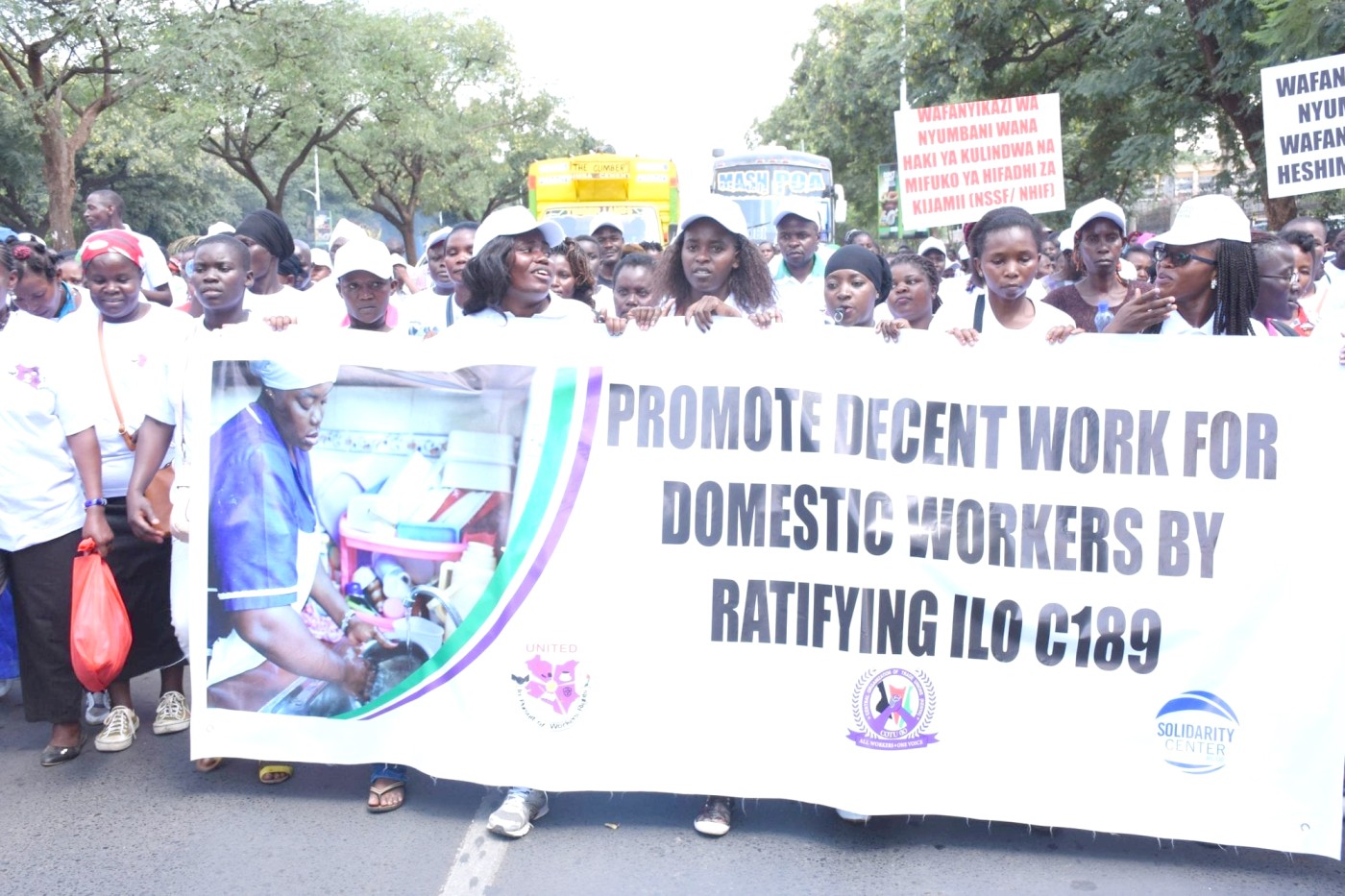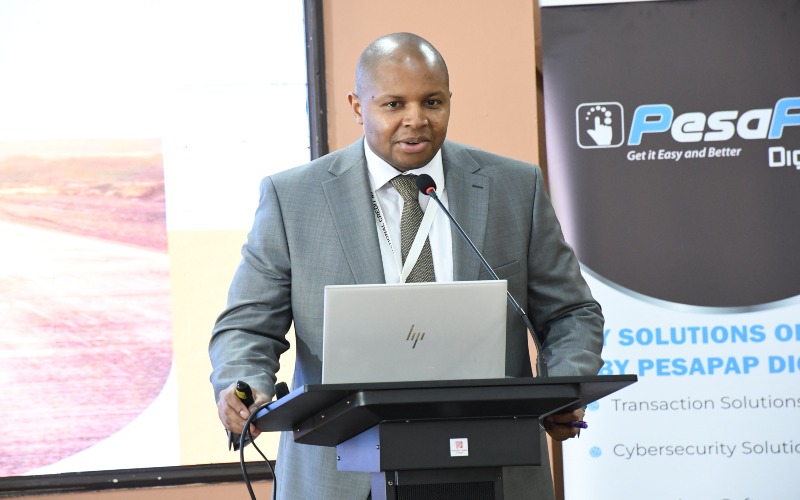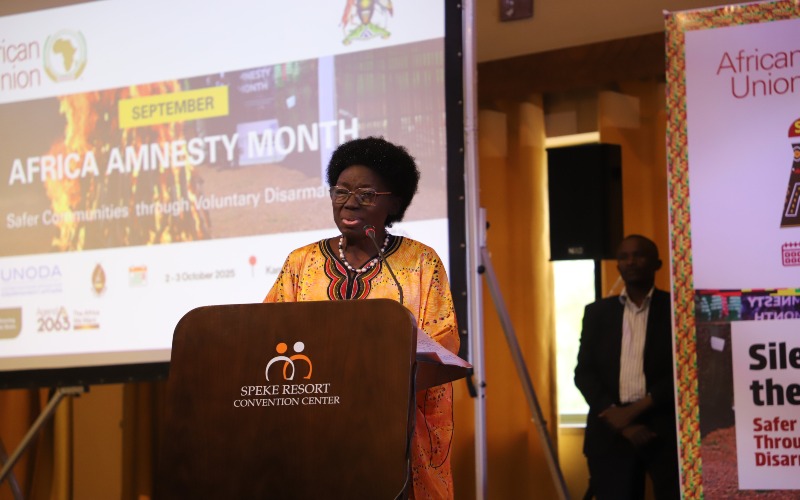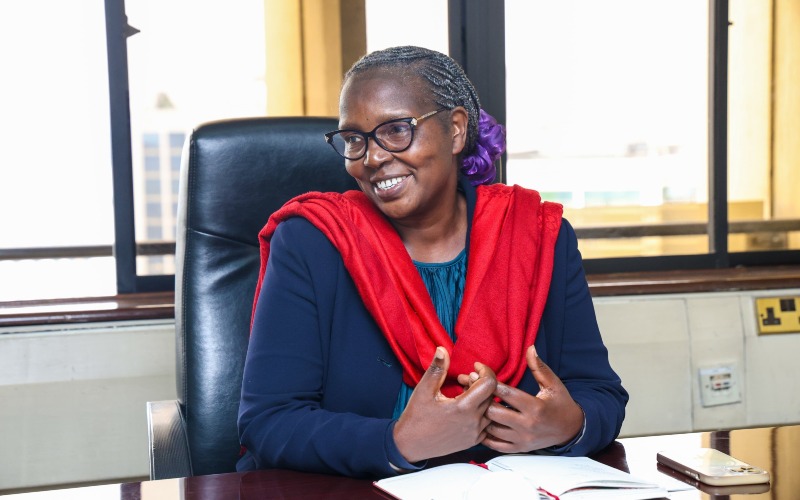Abused and overworked: The harsh realities facing most domestic workers

Many domestic workers find themselves working for more than eight hours a day without proper compensation
Neema Hamisi, a 21-year-old domestic worker from Diani, has been on a gruelling journey for over five years. Despite her experience, her work has been marked by abuse and exploitation.
Neema, who dropped out of school in Standard Eight, recalls her early days of seeking work.
More To Read
- How forged academic papers are helping fraudsters secure top government jobs — EACC
- Africa lags in green jobs boom, holds just 2 per cent of the global sum
- Graduated, now what? Survey of young Africans shows degrees don’t always land them a job
- FIDA-Kenya presses Kenya, UK to extradite soldier in Agnes Wanjiru murder case
- Telecom jobs fall even as subscribers and revenues rise
- Study: Over 130,000 Ugandan civil servants 'bought' jobs
At 16, she walked door-to-door offering services like laundry and cleaning.
"I faced a lot of challenges. At one point, a man tried to rape me. He threatened to report me to the police on false charges of theft if I refused. This was particularly terrifying because he used force, unlike others who would try to negotiate for extra services with promises of better pay," she says.
Seeking to escape such harassment, Neema moved from Ukunda to Mombasa. But her troubles did not end there.
She is not alone. Meswalehe Iddi, a domestic worker from Changamwe, Mombasa County, agrees that many in the profession face similar struggles.
“We often work without formal contracts. Employers can impose new duties or change terms at any time. We have no recourse because it’s usually our word against theirs,” Meswalehe says.
The lack of clear working hours is another major issue. Many domestic workers find themselves working over eight hours a day without proper compensation.
“We are also at risk of health hazards. For instance, when cleaning toilets, we are not given gloves, and we sometimes handle strong acids without protective masks,” says Meswalehe.
She reveals that some workers are paid as little as Sh3,000 per month, which is inadequate given the work they do.
 A worker cleaning a floor. (Photo: Handout)
A worker cleaning a floor. (Photo: Handout)A worker cleaning a floor. (Photo: Handout)
She advocates for government intervention to provide medical cover for domestic workers and facilitate them to join the retirement funds organisation NSSF. She also encourages workers to join unions for support.
Lucy Wangoi, another domestic worker, told The Eastleigh Voice that she used to work without a day off.
"I got a job at this particular house where I used to work seven days a week. I would wake up at 4 am to prepare packed lunch for the children and do other chores and I would sleep at 10 pm," she said.
It was only on weekends that she would wake up at 6 am and sleep at 9 pm.
Wangoi explained that most domestic workers are forced to endure exploitation for fear of losing their jobs.
"Most of us have little education, so it is hard to find a decent job or get the capital to start a business. We don’t know how we would feed our families if we do not persevere," she said.
Evalyne Atieno from the Federation of Women Lawyers (FIDA) said many domestic workers are unaware of their rights and face significant exploitation.
“Many workers don’t know their rights. FIDA helps resolve their cases and provides legal advice. We urge the government to adhere to constitutional provisions for worker protection,” Atieno said.
She said the organisation had been engaging the domestic workers’ union to sensitise its members and create awareness about their rights.
She noted that even with the awareness campaigns some workers still are not aware of their rights and do not know where to report when exploited. She said those who mostly go through severe exploitation are young and illiterate girls.
"There are those who look for girls below the age of 18 as house helps. This group can be easily exploited and they offer cheap labour," she said.
She said the government needs to ensure that girls in the school-going age bracket are not exposed to child labour.
 A file photo of a kitchen. (Photo: Handout)
A file photo of a kitchen. (Photo: Handout)
"It is wrong to employ a minor. The government should work to ensure people do not use children as domestic workers," she said.
Khamisi Juma Mkhoka, the chairperson of the workers' rights advocacy group Kudheiha, said there should always be formal agreements between employers and employees.
“Many workers face hardships due to the absence of unions and formal contracts,” he said.
He said employers should provide clear agreements and allow workers to join advocacy groups.
“Labour laws guarantee workers' rights, and labour offices are there to help if these rights are violated,” Mkhoka said.
Rahma Issa from Youth Alive said that civil society plays a significant role in advocating for workers' rights.
“Through projects like Time to Care, we collaborate with Kudheiha and Oxfam Kenya to address issues related to unpaid and paid care work at home. It’s essential for civil society organisations to work together to uphold workers' rights,” Rahma said.
Hilaria Fara, the assistant chief of Frere Town in Nyali Constituency, said domestic workers face various challenges.
“We handle disputes related to non-payment and other issues. Often, domestic workers are mistreated and underpaid. Many are unaware of their rights, so raising awareness is a key part of my role,” Hilaria said.
He said in some cases, domestic workers are physically assaulted by their employers.
Top Stories Today












































